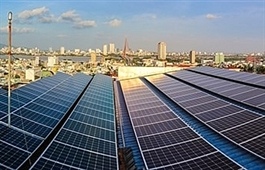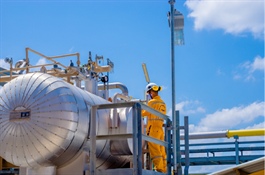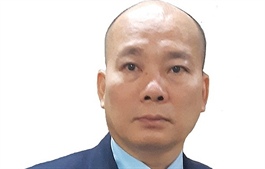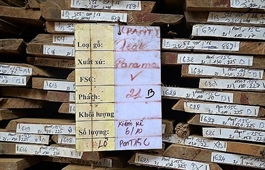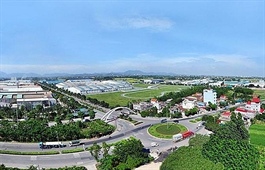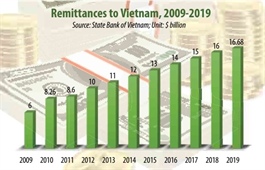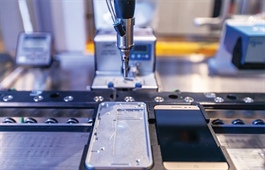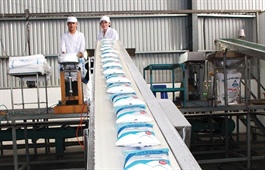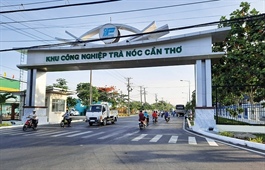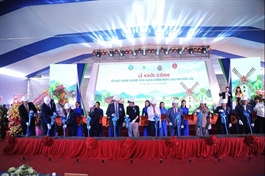Labour row besets Luxshare ambitions
Labour row besets Luxshare ambitions
This month’s strike at Luxshare ICT has highlighted a questionable working environment that goes some way to explaining why Apple recently delayed a potential iPhone production partnership with the manufacturer.
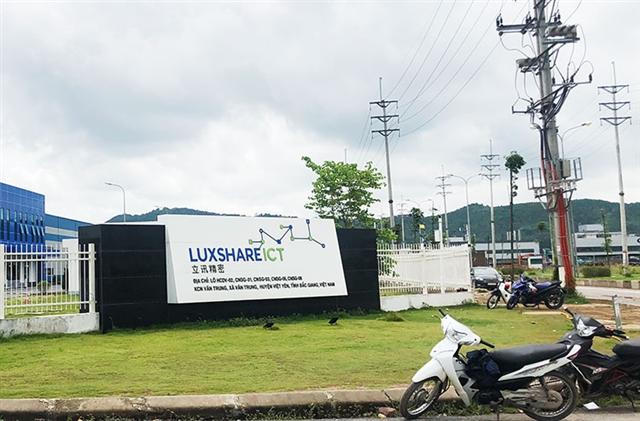
Labour row besets Luxshare ambitions
|
A few days after September 11’s strike at the Bac Giang factory, a handful of workers sat at the main gate waiting for their resignation procedures to be completed.
Do Van Binh, a local worker, told VIR that he had been fired for taking a day off without permission.
“Normally, the managers are lenient about having a day off without applying for leave. After the strike, they asked us to leave,” Binh said.
Binh was one of 5,000 labourers who went on strike at a workshop of the Chinese electronics factory in the northern province of Bac Giang.
Already making Apple Airpods, Luxshare ICT in July were recruiting thousands of more staff to assemble wireless headsets and smart watches similar to Airpods and Apple Watches.
On paper, the monthly base income of a Luxshare ICT worker is around VND4.8 million ($208), with extra allowances offered in the form of housing, meals, and overtime pay.
“I left Foxconn to work for Luxshare ICT, expecting a higher salary but they keep issuing fines over our performance,” said Nguyen Duc Thanh, another Luxshare ICT employee.
“They issued a daily defaults capacity and also fined people who miss targets – but often it’s the machinery that breaks down and workers cannot help falling behind. Still, the company fines them,” he said, adding that hour-long traffic jams between the gate and the factory parking lot are commonplace but the company has yet to deal with the issue while issuing fines for people who arrive late.
“We start at 8am and I always leave home at 7am to be still late and be fined,” Thanh said.
He explained that after the company’s Board of Directors pledged to address workers’ demands after the strikes, almost all workers returned to work.
“Since then, the company has only been giving out chump change to put complaints to rest,” he said. “We need more time to see how committed they are. The trade union has sent numerous complaints to the board of directors and they take a long time to reply.”
Unprofessional conduct
The stories of Thanh and Binh also uncovered unreasonable recruitment and operating practices at Luxshare ICT.
Despite being a partner of US giant Apple, workers said the company’s Recruitment Department only takes a cursory glance at the profiles of potential employees before making an appointment for training. They randomly appoint employees to different roles without considering their strengths and capacity.
“I have poor eyesight but they still picked me for a job which requires high accuracy. This is why I have to pay so much in fines for defective products,” Binh said.
He worked at the glue workshop, which is considered a toxic working environment but was given little protective gear, except a medical mask. In addition, the company only provides two small towels for a work shift, which Binh said is not enough. Workers also need more rubber tip finger protectors for their work.
“The smell of glue gives workers a headache, but the company does not classify it as a toxic working environment,” Binh said.
Although the workshop is new, the machinery itself is old and is often not used at all. For example, in the glue workshop, there are numerous hinge-mounting machines but workers still do the work by hand, which lowers accuracy and increases the number of defective products.
“Most of the machinery is broken or out-dated – probably they are only here as décor to fulfil the requirements of partners like Apple,” Thanh said.
Far from compliant
In August, Apple halted the relocation of its iPhone manufacturing lines to the factory in Bac Giang after uncovering that the facility did not meet the full requirements regarding labourers.
According to information published by Luxshare at the time, its current workforce is about 28,000. Meanwhile, to meet iPhone production criteria, the company would need 50,000-60,000 more labourers.
To date, nearby dorms for labourers remain under construction and most workers have to live in cramped boarding houses. Luxshare stated last month that it has purchased two land plots outside the facilities to construct more dorms.
Binh said that he shares a small room with other labourers more than half an hour from the factory. However, Luxshare only gave him a monthly allowance of VND500,000 ($22).
Working conditions are also problematic. Thanh said that his production area was so cramped, and workers could not move from their place without hampering others.
The accounts of Binh and Thanh show just how far Luxshare ICT is from fully satisfying (not only on paper but in spirit) the criteria of Apple – placing Vietnam further from breaking into the iPhone manufacturing chain.
VIR reached out to Luxshare ICT for comment both on location and via phone last week, but a response was not forthcoming.
On the day the strike ended, the company’s general director promised to implement the measures agreed, such as those on hazard pay, maternity leave, timekeeping records, and meal allowances.
|
On September 11, about 5,000 labourers at Luxshare ICT went on strike, requiring the company’s Board of Directors to adjust policies related to working overtime, allowances for working in a toxic environment, pregnant workers, and more. After a meeting the following day, the company responded to workers’ main demands but those on the night shift that evening continued striking. On the morning of September 13, Viet Tri District People’s Committee held a meeting with the company. As a result, the company made another announcement listing detailed commitments. These included paying correct salaries and overtime; a fair system for sick leave and annual leave; making sure the factory is fully equipped with medicine and medical equipment; and not docking workers’ pay or benefits for the days they were on strike. On September 14 the labourers returned to work. Accordingly, the company committed to recheck and pay full salaries before September 20. However, as of September 22, workers were still waiting to receive their full earnings from the factory. |



